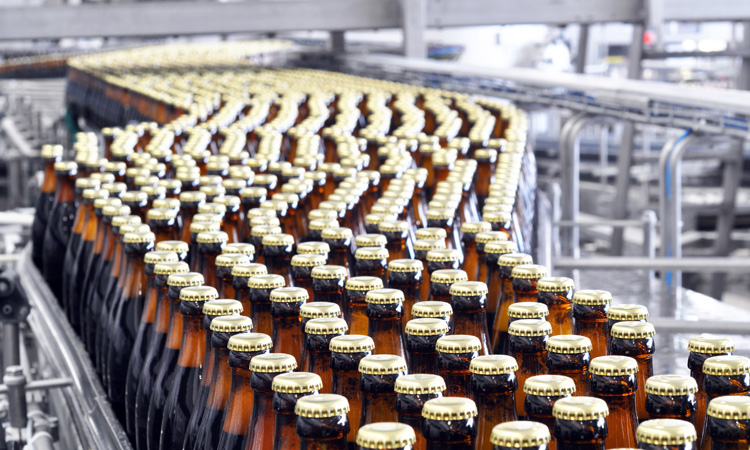How has COVID-19 impacted the UK brewing and distilling industries?
- Like
- Digg
- Del
- Tumblr
- VKontakte
- Buffer
- Love This
- Odnoklassniki
- Meneame
- Blogger
- Amazon
- Yahoo Mail
- Gmail
- AOL
- Newsvine
- HackerNews
- Evernote
- MySpace
- Mail.ru
- Viadeo
- Line
- Comments
- Yummly
- SMS
- Viber
- Telegram
- Subscribe
- Skype
- Facebook Messenger
- Kakao
- LiveJournal
- Yammer
- Edgar
- Fintel
- Mix
- Instapaper
- Copy Link
Posted: 20 May 2020 | Murdoch MacLennan | No comments yet
Murdoch MacLennan, Partner & Head of Brewing & Distilling at Campbell Dallas, tells New Food how the novel coronavirus has impacted UK brewing supply and demand.


The coronavirus (COVID-19) pandemic has seen a shift in consumer demand and behaviour. People are striving to be healthier, but are they drinking less alcohol? Despite the fact that retail and outlet establishments have been forced to close under lockdown restrictions, some alcohol categories have seen a surge in sales from supermarkets and online retail. So, New Food spoke with brewing and stilling expert Murdoch MacLennan from Campbell Dallas, an accounting and business advisory firm in Scotland, to find out how – financially and logistically – this pandemic has left its mark on the brewing industry.
Q: How has the UK brewing industry been impacted by the COVID-19 crisis? How have supply chains been affected?
A: The closure and no immediate sign of re-opening of the on-trade has had a major impact on the brewing industry. Some producers who have little or no off-trade customers have seen their revenues fall to near zero. Those who have greater exposure to the off-trade have seen, in some cases, a near doubling in demand as consumers purchase more for consumption at home.
However, the gross margins in these two lines are quite different and generate less profit. Some are finding it hard to keep up with this demand unless they have their own dedicated in-house canning and bottling lines.
Producers will be looking at how to re-launch, how consumers’ tastes/expectations have changed and what they will buy and from where.
The distillery industry has seen visitor centres close, reduced staff with safe distancing rules in warehouses and some ceasing production. Instead, a lot have been undertaking some of their annual maintenance programmes to be ready for the restart of production.
Supplying into retail/duty free/specialist whisky shops across the globe, which generates footfall, has impacted revenue with some anticipating a reduction of 30 percent in what they expected pre COVID-19. Obtaining wood for spirit has been impacted because this needs to imported in containers, but with the overall impact on global trade, less containers are moving.
Bottling lines have also been impacted; if you do not have your own you are likely to have had longer lead in times to bottle your product.
Q: Will this have lasting implications?
A: Like lots of businesses across the UK, some are unlikely to make it. This will ultimately, in the short term, reduce the choice in the marketplace. Producers will be looking at how to re-launch, how consumers’ tastes/expectations have changed and what they will buy and from where. Consumers are ordering more online than ever before, and partaking in virtual tastings and chat boards which will also have an impact – certainly in the short-term. Are you ready and have you thought through how to adjust?
Q: How have breweries and distilleries overcome these challenges in practice?
A: Those who have a revenue stream from both the on and off trade and export have created a level of hedging for themselves, however not all can achieve this due to scale and resources. Every business, and not just those within brewing and distilling, have taken a critical eye to their business across all costs and new revenue streams to protect them as much as possible. Lots have sought and have taken government help which is welcome.
Q: Why do you recommend for breweries and distilleries to take advantage of funding opportunities, even if they do not necessarily need it?
A: Brewing and distilling businesses need to do what they can now to preserve cash if they want to successfully redevelop operations post crisis. If they don’t have the cash to hand they risk not having enough working capital to effectively expand production putting additional strain on the business and may risk its effective recovery. In practical terms, that means minimising operating costs now, utilising government support by furloughing staff, deferring tax/duty payments, taking advantage of rates or similar company grants, minimising or cancelling dividend payments, requesting capital repayment holidays and having the option to access a Coronavirus Business Interruption Loan Scheme.


The big unknown is the on the demand side; when will the country re-open? At what rate? Will it be similar to before, and do I have enough cash to get me through this timeline and working capital on other side when demand picks up?
Businesses do not want to borrow any more money than they have to, but they should consider applying if appropriate and eligible for a BBL/CBILS facility that has 12 months interest paid by the government and up to 12-month capital holiday. If it transpires that your cashflow is better than planned, the loan can be repaid with no early repayment penalty.
Although all producers within the brewing and distilling industry will be affected, the small to large independents are likely to see the greatest impact purely down to their scale/resources and delay in the marketplace re-opening.
Related topics
Beverages, COVID-19, Recruitment & workforce, Revenues, The consumer, Trade & Economy








